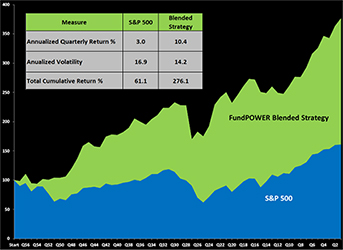Is your investment advisor looking out for you? We need to be careful in addressing this question. Unfortunately, there are so many misconceptions about the role, goals and skills of investment advisors, and there are so many differences between specific advisors and/or their companies, that we really cannot generalize.
The ultimate decision to use an advisor or financial planner, or to manage your own nest-egg, the DIY way, is entirely yours. But whichever direction you choose to go in, always remember to do your homework and don’t be afraid to ask questions.
The role of SEC and FINRA related to advisory practices:
- The SEC (Securities Exchange Commission) and FINRA (Financial Industry Regulatory Authority), both Federal Government organizations, have the job of ensuring (amongst other responsibilities), that advisors who sell securities including all kinds of funds and insurance products, follow best practices, and don’t do things that are intended to harm you financially, or hurt you by deception or fraud.
- This is a lay person’s description of the responsibility of SEC and FINRA towards the common investor, but good enough to understand that just because someone passes all certification exams, registers as a financial advisor or planner per Federal and local laws, it does not mean that the person is capable of managing your investments well!
- It’s the same situation that happens when you buy into a fund because its past performance has been excellent, and the fund manager looks impressive, is well educated and experienced, and is well known. One good manager’s decisions might not be as good as those of another good manager. Similarly it’s very hard to know the investment management capability and interest of financial advisors or planners.
Set out below either typical notions of investors, or what the industry has unwittingly made people believe:
“I have a proven track record of managing investments. Just look at the large number of clients and the amount of money I manage, and you will know.”
- Do you know the returns they have produced for their clients, and their variability? Can the advisor guarantee even a minimum level of return? Is it possible that other clients want to use an advisor because they don’t want to spend time managing their own investments, or they don’t have the know-how and information, or because the fees and costs don’t matter to them, or that they simply trust the advisor to “do the right thing” for them
- Have you forgotten what Uncle Sam and the academics have taught you, and what Wall Street professionals know very well — that past returns are no guarantee of future performance?
“I charge you fees, but I can give you peace of mind that your nest-egg is in good hands, and protected against the storms and choppy waters of the economic seas.”
- Does the advisor tell you how exactly he/she manages your investments, beyond general statements of philosophy and “fiduciary” responsibility? Does the advisor use accurate mutual fund performance data and a defined way of making investment decisions to follow proven, data driven risk management methods?
- Or does the advisor use rules-of-thumb about asset allocation that might not be valid anymore? Or the advisor simply recommends funds to you that get more commissions from fund companies to the advisors broker?
- Is the advisor using Morningstar and Lipper ratings to select funds, knowing well that they are based on past total returns? Did you know that even fund managers and Wall Street professionals don’t use these ratings for their firm’s proprietary investments?
“You got great returns on your portfolio last year (– implies, the advisor must be doing something good). And the prior year, your portfolio lost money because the market was bad (– implies, that the advisor was still good, but it’s the market that should be blamed)!”
- Do you really believe that good returns show the advisor’s skills, while bad returns are due to the market? If the market can drive your losses, does it not also drive your gains?
- We actually know of advisors and funds, which habitually lose more when the market goes down, but gain less when the market goes up!
“It’s not good to buy and sell funds. Don’t time the market; no one can do it successfully for long. Just buy some good funds (that your advisor will recommend), and hold on to them for a long time.”
- What’s a good fund? How to measure goodness of a fund for inclusion in your portfolio? Not just its sector or style such as domestic, equity, bond, international, etc., but the specific fund that is being recommended? There are studies that show that funds change behavior over time and most funds that are “good” today are not likely to have the same level of performance in the future.
- If you are to buy and hold, will the good fund stay good until you want to retire? Or the advisor will tell you when the good fund is not good anymore? What is the advisor’s method of making that bet for you?
- In today’s global and uncertain economy, the “buy and hold” rule-of-thumb is obsolete. You will need to be ready and equipped to trade in and out of your invested securities, at appropriate times, without market timing, or chasing past returns.
“My goal is to get you good satisfaction and good returns on your money. I always do the right thing for my clients.”
- The main goal of advisors, brokers and fund companies is to make money, without having to guarantee returns on your investments. To make money, the advisor, or mutual fund, or broker must get more money to manage, and/or more customers. This is done by building an image of trust and expertise by way of marketing and sales. And even the marketing costs are deducted indirectly from you investments. So the main job of advisors is to sell. Managing your portfolio will come last.
- A typical advisor spends almost the whole day building relationships, meeting customers to show them their quarterly or annual investment results, and absolutely minimal time on analyzing investment opportunities, learning and applying advanced investment management methods.
- In the last decade, a very large investment bank and brokerage house had created a reputation for hiring inexperienced graduates as advisors, and pushing them to sell, sell and sell. The frontline “advisors” were not allowed to analyze or second guess the company’s ratings of the
securities being sold. Things changed after many class action suits by customers who were sold bad securities.
“My fees are nominal compared to the good returns that could be achieved for your investments.”
- Your returns are not guaranteed. But if you are not knowledgeable, the future numbers shown as illustrations by the advisor or broker could provide unwitting psychological comfort. Yet your costs (fees paid to the advisor) are guaranteed. So you are guaranteeing payment to the advisor in return for “Hope.” You be the judge!



